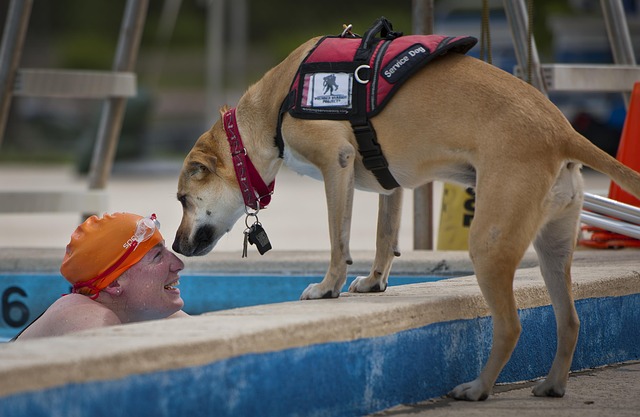19 US states now have laws making it a misdemeanor offense to pass off a pet as a service animal. The movement to stop this unethical and surprisingly harmful practice has gained steam over the past few years, spurring new legislation.
Virginia enacted their law in 2016, with Colorado following suit this year. Massachusetts is currently considering a similar proposal.
“Today, any pet owner can go online and buy a vest for a dog to pass it off as a service animal to gain access to restaurants, hotels and places of business,” Representative Kimberly Ferguson, who introduced the Massachusetts bill, said. “Their animals aren’t trained and end up misbehaving in these public places, which gives real service dogs a bad name.”

According to the American Humane Association, there are 20,000 legitimate service dogs working in the U.S. They assist their handlers with a wide array of tasks from guide services to seizure detection, mobility aid and everyday chores.
Legitimate service dogs are not recorded in a national registry or required to obtain universal certification, so there is no official way to verify whether a dog is highly trained or faking it. This makes it difficult to enforce the laws.
In addition to the lack of documentation, business owners are barred from asking all but two questions of a person claiming to need a service dog: whether the dog is required because of a disability and what tasks the dog is trained to perform.
It is illegal under the Americans with Disabilities Act (ADA) to request documentation or ask the owner to reveal details of his or her disability.
Yet another problem is the growing number of emotional support animals, which are not covered by ADA laws. These dogs are intended to comfort owners suffering from anxiety or other emotional problems. Absolutely no training is required for an emotional support dog, let alone the rigorous programs completed by service dogs.
The result of the confusion is that some businesses end up allowing any pup masquerading as a service dog into their establishment for fear of violating the ADA, while others take the opposite route and ban all dogs, including those protected by the ADA.
Ken Shiotani, an attorney with the National Disability Rights Network, is glad to see so many states attempting to solve the fake service dog problem, but says the laws should be aimed at education, rather than punishment.
“We want to have a positive impact on people to help them realize that what they’ve done has this very negative effect.”
Most current laws call for fines of no greater than $500.
Fake service dogs are harmful because:
- They distract real service dogs
- They cause real service dogs and their handlers to be unfairly judged
- They are an insult to those Americans who depend upon their service dogs
- They cause undue stress for real service dog handlers
- They cost business owners money when they misbehave in public
Put it this way: Would you park in a handicapped spot or pass yourself off as a veteran?…No?…Then why would you pretend to rely on a service dog?
H/T to USA Today
